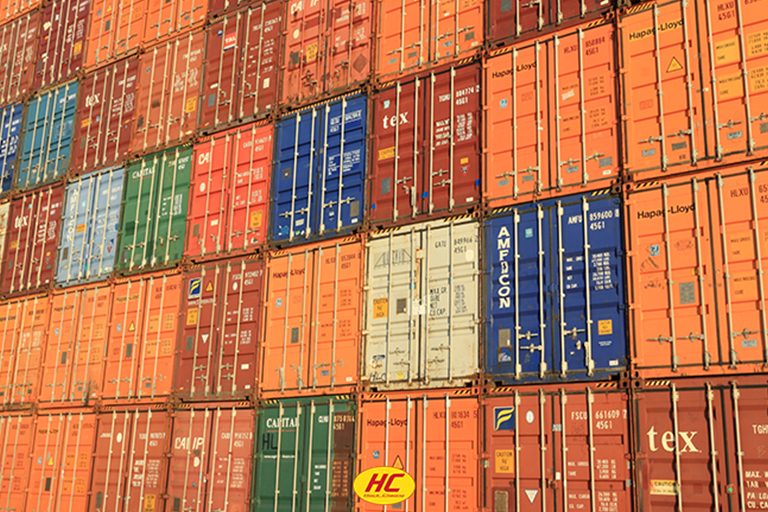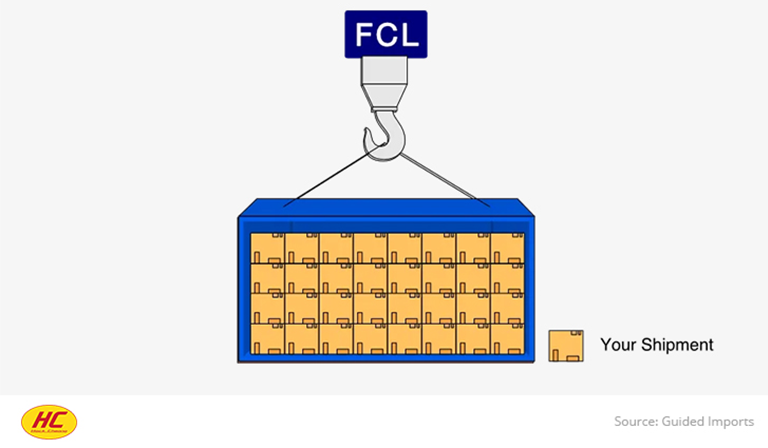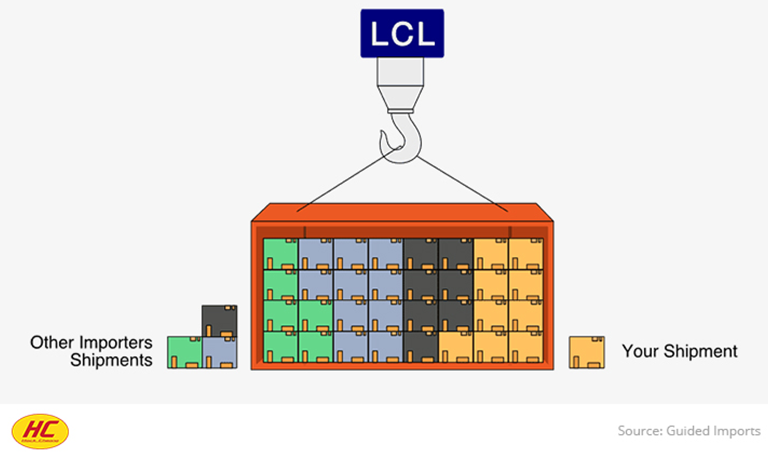

Whether you’re a retailer or a manufacturing company, the shipping terms used in logistic services would have stumbled you at least once or twice. Well, if you’re reading this, you’re probably contemplating between opting for LCL shipment or FCL, wondering what exactly is their difference. In this article, we explain to you the key distinctions between both shipment types, as well as their pros and cons.

FCL stands for Full Container Load. Shipping by FCL means paying for an entire container of any size and loading it with your own cargo for shipment. This mode of shipping is typically employed by large importers importing a huge amount of goods at once because paying for a full container to ship their cargo would make a lot more sense.
FCL shipments can be loaded by a supplier at their premises before the containers are being hauled for shipment. After shipping, an importer’s container can either be unstuffed before being delivered, or transport services can be arranged to drop the container directly at the warehouse rather than having to wait for it to be unstuffed.

LCL stands for Less than Container Load. It is an alternative shipping method available to companies that do not have enough products to fill up an entire container. Smaller importers and exporters can choose to pay for a container space and have their goods consolidated with other importers’ LCL shipments to fill up one container.
When compared to FCL shipments, LCL is typically a better alternative for businesses with low-volume shipments less than 13 cubic metres.
Now that you’re familiar with the difference between LCL shipment and FCL shipment, you can make an informed decision that will benefit your business.
Looking for logistic services to help you with the shipping and warehousing of your inventory? Hock Cheong is a leading third-party logistics company in Malaysia that provides logistic services connecting Singapore, Malaysia, Brunei and China. With more than 90 years of history and experience, contact us today for professional supply chain solutions tailored to your business.
Get a quote or find out more.